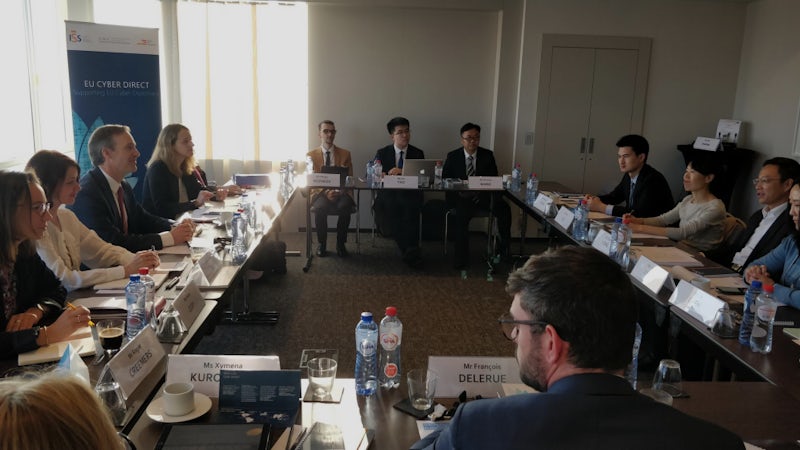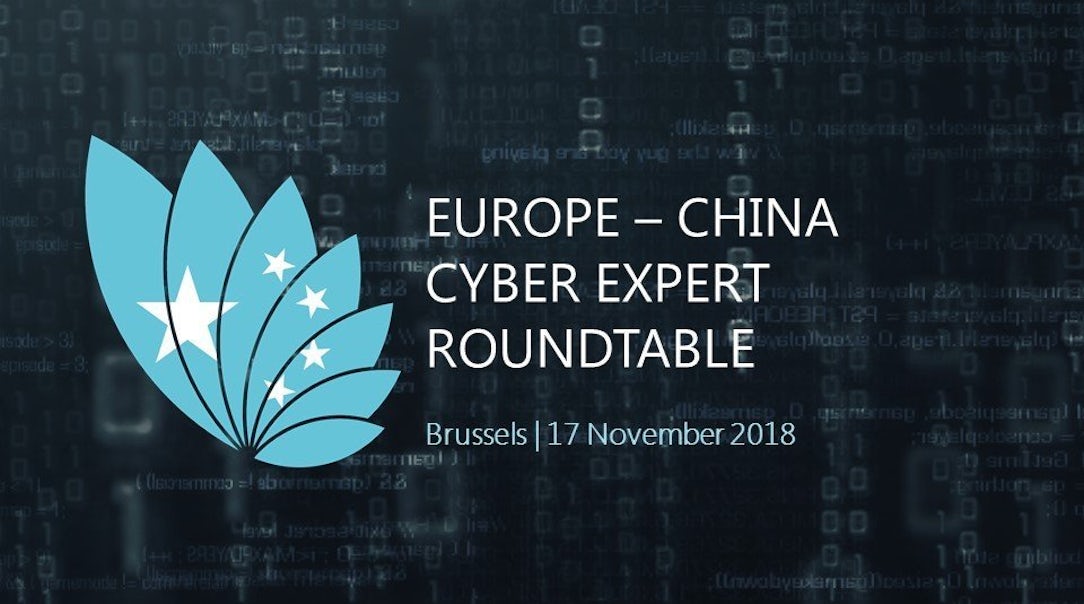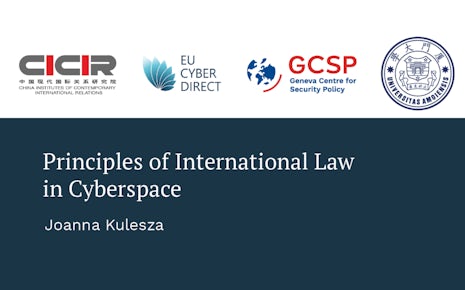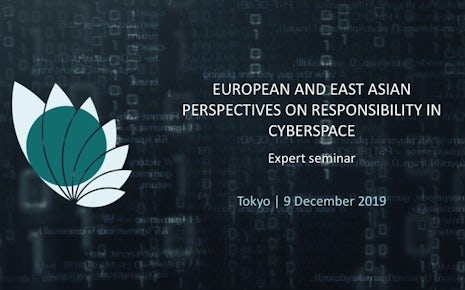How do China and Europe approach international cyber diplomacy and international cybersecurity cooperation? What are the key areas of future collaboration with the most added value for ensuring stability in cyberspace? These are some of the questions addressed at the November 2018 EU Cyber Direct meeting in Brussels between European experts and Chinese officials organized on the margins of the EU-China Cyber Task Force.
Roundtable discussions focused on mapping out the outcomes of formal dialogue mechanisms between the EU and China in areas such as the application of international law in cyberspace and the development of universal norms of responsible state behaviour, the challenges that lied ahead, and possible measures that will move and expand dialogue further. More concretely, both sides construed academic and think tank cooperative formats, joint research workshops on pertinent cyber issues of international law and the creation of common repositories of legal and para-legal thinking on cyber as effective ways to strengthen and influence track 1 diplomacy in light of the limited contact surface between the EU and China on cyber matters. Track 1.5 and 2 frameworks were underscored as useful confidence-building measures for future dialogue in that they provide EU and Chinese experts with the opportunity to acknowledge and clarify definitional gaps, enhance mutual understanding of domestic cybersecurity-related policy and approaches to specific provisions of international law’s applicability to cyberspace.

Furthermore, representatives of the Chinese Ministry of Foreign Affairs provided an overview of the PRC’s attempts in shaping and formulating rules and norms of state behaviour in cyberspace, manifested by normative activity at the UN level, the publishing of the first International Strategy of Cooperation in Cyberspace in 2017, leading regional organisations SCO and BRICS’ cybersecurity initiatives, the launch of the Wuzhen Internet Conference governance format, and by implementing an all-encompassing system of domestic cybersecurity legislation and policy guidance in 2016.
The participants also stressed that international community must work towards ensuring that the UN processes — the open-ended working group (OEWG) and the Group of Governmental Experts (GGE) — are synergetic, in particular through identifying points of convergences, sequencing of activities, and possible division of labour between the two.
Despite perceiving the OEWG as the more inclusive format, Chinese participants argued that the two processes could be complementary and build on each other. To do so, coordination across institutions and informal consultations are crucial. Furthermore, Chinese delegation also welcomed the Paris Call for Trust and Security in Cyberspace as a positive development reflecting a growing commitment to ensuring strong cybersecurity at the global level. Beijing, however, needs more time to study the contents of the Call and deliberate whether to join it.

Moreover, the Chinese side highlighted their support for further discussion aimed at clarifying the application of the existing international law in cyberspace, including but not limited to, the provisions of the UN Charter, aspects of international humanitarian law, and adjacent fields of customary law. However, as accentuated by the Chinese officials, the basis of Beijing’s international law strand of cyber diplomacy falls on legal provisions that help prevent cyber conflict, foster peace and maintain sovereign equality. These components of international law are adopted as guiding principles in China’s international cyber cooperation interventions. Principles, such as self-defence and countermeasures, are perceived as secondary elements of a broader spectrum of measures to resolve conflict or ensure peace and stability. That being said, future initiatives, such as the Expert Working Group on International Law in Cyberspace led by European and Chinese think tanks, are likely to shed more light on how specific principles of international law are understood in the Chinese and European legal contexts, as well as the possible divergences in interpretation.
- Follow us on Twitter @EUCyberDirect
- Join the conversation on cyber diplomacy on Twitter using #EUCyber



